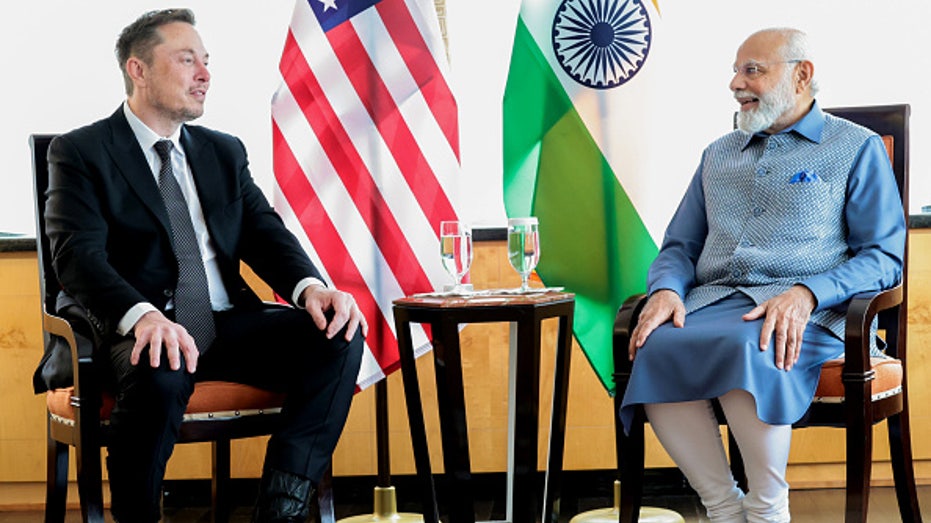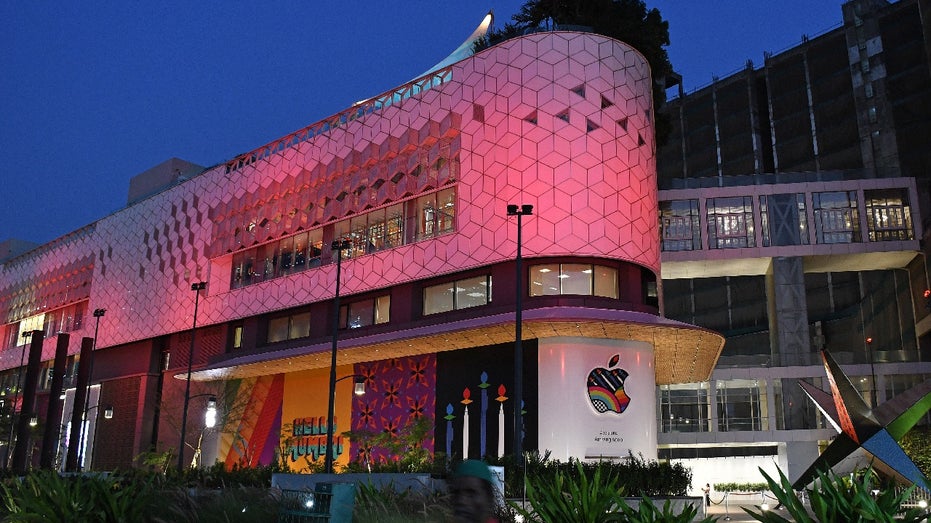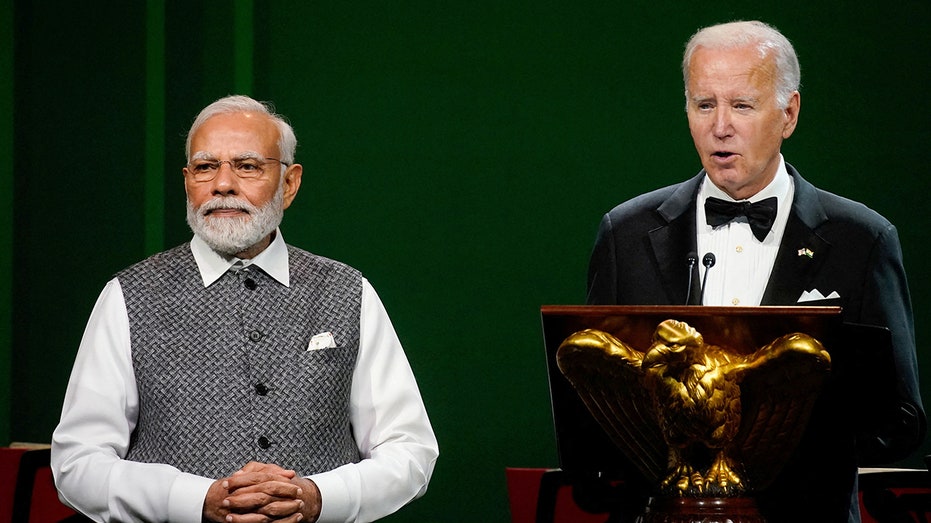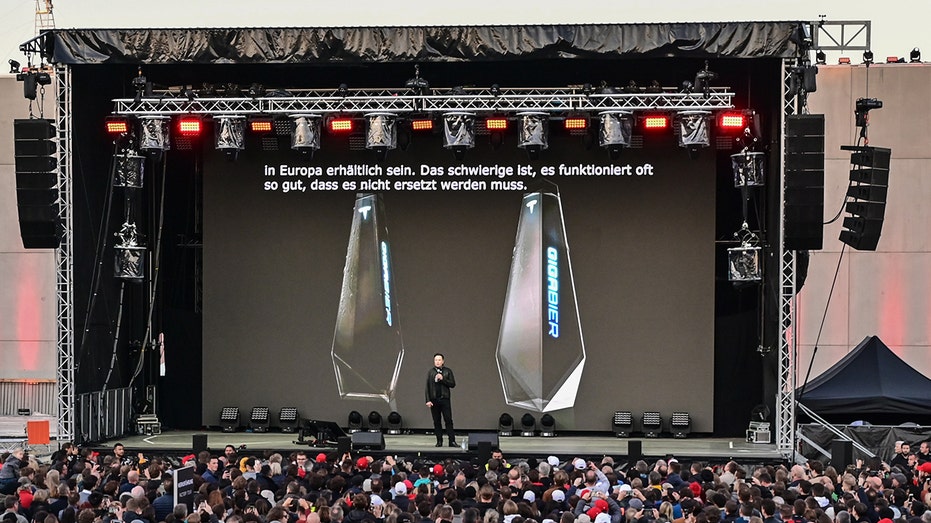Tech firms look to India as China manufacturing alternative — if it can overcome challenges, expert says
India has overtaken United Kingdom as fifth-largest global economy
US-India relationship of 'critical importance': Lawler
Rep. Mike Lawler, R-N.Y., discusses U.S. tech titans attending the Indian Prime Minister Modi state dinner and China's rising aggression.
India’s ascendancy received a significant boost following Prime Minister Narendra Modi’s visit to the U.S., where he continued to shore up manufacturing deals that will further secure his country’s place as an economic powerhouse.
"What is happening is investors do not want to invest in China and its tech sector and the easy way to do investments is going to India, do investment in India," Balbinder Singh Gill, an assistant professor of finance at Stevens Institute of Technology, told FOX Business.
Modi last week completed his first U.S. state visit during the Biden administration – complete with an address to Congress. He first visited New York City, where he met with business leaders to hash out more vital trade deals.
Chief among those deals may be electric carmaker Tesla, which CEO Elon Musk said would be in India "as soon as humanly possible." Musk told Reuters that Modi has pushed for a "significant" investment in the country.
BIDEN ADMIN CONTINUOUSLY ENGAGES IN ‘ZOMBIE DIPLOMACY' WITH CHINA: REP ANDY BARR
Musk highlighted India’s tremendous potential for sustainable energy production, beginning with solar and wind energy generation. India this year ranks as the fifth-largest economy in the world, overtaking the United Kingdom.

Indian Prime Minister Narendra Modi, right, meets with Tesla CEO Elon Musk in New York on June 20, 2023.
Tesla would follow in Apple’s footsteps. The American tech giant has manufactured iPhones in India since 2017, and this year, it opened its first Apple Store locations in Mumbai and Delhi while also starting new environmental initiatives.
Modi capped his visit to the U.S. with a meeting on Friday with Indian and American tech executives in Washington, where he agreed to cooperate in new defense and technology projects.
JUSTICE DEPARTMENT ANNOUNCES CHARGES AGAINST CHINESE COMPANIES, ARRESTS IN FENTANYL MANUFACTURING
Modi told the Wall Street Journal that "India deserves a much higher, deeper and wider profile and a role," adding that he did not see India's role as "supplanting any country" but that it's simply "gaining its rightful position in the world."
India’s success, however, comes at China’s expense. The Biden administration has viewed its relationship with New Delhi as a vital counterpoint to Beijing’s efforts at reshaping international dynamics.

This image shows Apple's first company-owned store in India, located in Mumbai, on April 6, 2023. (Ashish Vaishnav/SOPA Images/LightRocket via Getty Images / Getty Images)
China has tried to elevate the prominence of its BRICS (Brazil, Russia, India, China) economic bloc and Shanghai Cooperation Organization – both organizations that feature India and Russia as members and could play a role in strengthening Beijing’s foreign influence.
Modi did not address China directly during the visit, and Biden only mentioned China in response to a reporter's question, but a joint statement included a pointed reference to the East and South China seas, where China has territorial disputes with its neighbors.
MICROSOFT, US REGULATORS HEAD TO COURT OVER $69B DEAL
White House national security spokesperson John Kirby said the challenges presented by China to both Washington and New Delhi were on the agenda but insisted the visit "wasn't about China."
"This wasn't about leveraging India to be some sort of counterweight. India is a sovereign, independent state," Kirby said at a news briefing. "There's a lot we can do in the security front together. And that's really what we're focused on."

A laborer seals sacks filled with wheat in Gurdaspur, India, on April 30, 2014. (AP Photo/Channi Anand / AP Newsroom)
Gill highlighted the "crazy" situation in China’s tech sector as a potential driving factor as to why investors and companies might see India as a more attractive option.
"What we are seeing is basically a lot of investors are going to India instead of China because China is going really crazy in its tech sector," Gill said. "For example, cryptocurrencies are illegal. They have new revelations in terms of data collection."
FTC ARGUES WHY MICROSOFT'S DEAL TO BUY ACTIVISION SHOULD BE BLOCKED

President Joe Biden, right, speaks beside Indian Prime Minister Narendra Modi during a state dinner at the White House on June 22, 2023. (Reuters/Elizabeth Frantz / Reuters Photos)
"India has a large, skilled workforce, and they are also cheap," Gill said. "So, similar wages as China, and then also what is important is the government is simplifying regulation, bureaucratic costs are going down."
Gill noted that the infrastructure in India still needs work. He said only 5% of the nation's roads are highways, around 40% are still dirt roads, and he called the effort to improve infrastructure "a huge construction project" for highways and rail systems.

Elon Musk, Tesla CEO, stands on a stage at the Tesla Gigafactory in Brandenburg, Grünheide, Germany, on Oct. 9, 2021. (Patrick Pleul/picture alliance via Getty Images / Getty Images)
"What we are always hoping and all know [is] that companies actually are going to ensure some of the low labor costs, so I think a good challenge for India will be if you are able to attract all of these foreign direct investment, are you are actually also employing local Indians and kind of paying local Indians," Gill said.
"Automatically, the rate will increase, so if a country is doing well, workers, you know, will get higher wages," he continued. "I think in the beginning the wages will be low, but this will increase, and then the challenge will be at that point to keep the foreign company in India."
GET FOX BUSINESS ON THE GO BY CLICKING HERE
"You have to make sure that things are affordable, that we will increase, so it's … like building a new economy," he added. "You want to go fast, quick, but it's impossible to build the economy as we did in the U.S. like we did in the North Atlantic. Some regions will go fast, some regions will be prosperous, will become reality, but it will be a challenge in … [the] long run."
FOX Business’s Joe Toppe and Reuters contributed to this report.





















